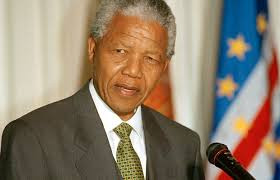
Reed Martin and Austin Richenor, two members of the Reduced Shakespeare Company, did what probably most of us as pupils always wanted to do and that was reduce Shakespeare’s plays to a single sentence, instead of sentencing us to three or four hours of complicated verse. These included (found in Atkins Bookshelf webpage) Othello being summarised as Othello foregoes marital counselling and takes matters into his own hands” while Macbeth is seen as “Lady Macbeth encourages her husband to be more aggressive in pursuing career options”! They are even shorter with Antony and Cleopatra, describing it as “Love bites”. Another website (Odyssey online) offers alternatives with Hamlet described as “A fully-grown, college-educated man mopes and whines like a child about his home life”. That all makes so much more sense (and saves time)!
In a similar but different vein, the celebrated writer, Ernest Hemingway, once made a bet that he could write a story only six words long. His offering was, “For Sale: Baby shoes, never worn.” Other writers have followed suit: one wrote “Time flies. Memories fade. Love remains” and another wrote “Forgotten, alone, she waited for him.” In our current social media age, we like things to be short so short stories appeal more than longer novels. However, just as many people, including Blaise Pascal, Mark Twain and Winston Churchill, have humorously declared that “I have made this [letter] longer than usual because I have not had time to make it shorter” so William Faulkner, the novelist, has reportedly written: “Short stories are harder to write than novels.”
Short stories certainly require conciseness. Every word, every phrase has to count. There needs to be a focussed plot, limited characters, a simple setting and ideally a twist at the end. The Lottery is a short story by Shirley Jackson which draws the reader into the excitement and suspense of a public lottery before delivering a surprise ending. The Monkey’s Paw by WW Jacobs, A Sound of Thunder by Ray Bradbury and The Landlady by Roald Dahl are all classic short stories profoundly written.
We do well to understand as educators (teachers and parents), as well as to educate our youngsters on the theme, that the “small stuff” are often, like short stories, the most effective and meaningful actions. Nelson Mandela was a master at it. Who could forget the hugely profound and powerful statement that he made when he donned the symbol of apartheid South Africa, the Springbok jersey, at the 1995 Rugby World Cup, to present the trophy, uniting his country? Francois Pienaar, the Springbok captain, recorded how Mandela would often phone him during the tournament to ask how it was all going. Before his inauguration, he kept 184 world leaders waiting because he stopped his car to speak to an Afrikaner army Colonel and tell him they were on the same team now.
It is the small things that can change a mood, a mindset, a meeting – a word, a moment, a smile, a call, a verse. A Head watched five minutes of a tennis match and the pupils later thanked him profusely. A Head wrote a hand-written note of two sentences to staff, one of whom said it meant more to him than his salary while another declared he would frame it. A man quietly knocked a golf ball out of a divot knowing that his son’s friend (whose ball it was) was desperate to impress him.
We might take the analogy further and reflect on how, in financial matters, small change, when collected and added together can make a big difference. Children need to learn to value the small stuff which can make a big difference. The fact is that it does not cost much to do the small things (in fact, many meaningful small things cost absolutely nothing). And of course, we as educators do well to remember that it is our pupils, our youngsters, who are small. We need to remember them.
If short stories are harder to write than novels, we may be left to wonder where that leaves newspaper articles! In a previous article, entitled Don’t Sweat the Small Stuff, we argued that in education we needed to focus on what is really important and not get stuck on small, incidental, insignificant (in the long term) detail. However, at the same time we do need to realise and remember that often ‘small stuff’ can speak more powerfully, memorably and beautifully than big shows. There is no twist here; it is the truth – folk appreciate more the small acts of kindness and consideration. This is not a lottery; it is a certainty. Do whet their appetite by doing the small stuff.
- Do whet the small stuff










